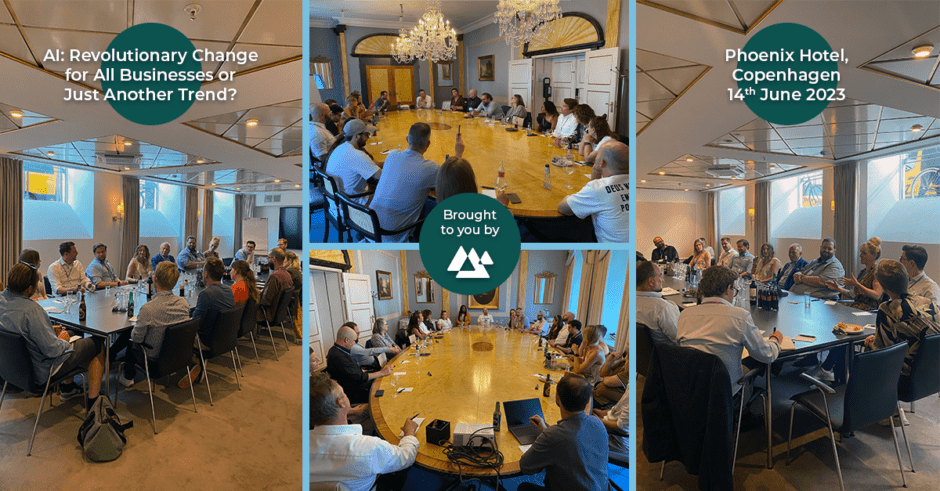Annapurna recently hosted a networking event for some of Copenhagen’s industry leaders representing the world of Sales, Marketing, HR, Technology and Founders.
The topic of conversation was all around ‘AI: Revolutionary change for all businesses or just another trend?’
The session scratched the surface on the vast topic of AI and its current impact, with the group being split into 2 round table conversations. Each group had a slightly nuanced flow of conversation, which was hosted by Becky Finnegan (Associate Director at Annapurna) & Florian Felsenreich (Associate Director, Customer Success at Annapurna).
The conversations brought about the following takeaways:
Integration of AI
The responsibility for utilising data and implementing AI tools should fall under the purview of the Chief Technology Officer (CTO). However, there is a lack of clarity and policies within the people function on how to effectively utilise AI and write internal usage policies. Some companies are ‘going rogue’ with AI implementation, while others believe it will take another two years for full integration into day-to-day work. Synthetic data sets are being used to trial new processes and tools.
Shifting Content Landscape
There is a notable shift in content consumption trends, with website traffic decreasing and a greater focus on video-based content rather than text-based content. Questions arise regarding the relevance of traditional tools like e-books and the possibility of tools extracting key data for us, potentially reducing the need for websites. However, creating authenticity and maintaining a human touch are still considered important. AI tools are seen as co-pilots that enhance efficiency but do not replace human involvement.
Evolving Job Market and Education
Jobs are expected to evolve as society changes, with shifts in demand for different skill sets. The challenge lies in ensuring education systems can keep pace with these changes and avoid creating a divide between Western-educated societies and third-world countries. Branding and authenticity remain crucial factors in the evolving landscape. The impact of global regulations on AI adoption is a topic of interest, as some perceive regulations to be slow. The younger generation’s perspective on whether it matters if a task is performed by a computer or a human is also a point of curiosity.
As the field of AI continues to evolve, organizations must navigate the challenges of policy development, adapt to changing content consumption habits, and consider the implications on the job market and education systems. The role of authenticity, human interaction, and global regulations will shape the future landscape of AI integration and its impact on society.
Keep an eye out for our latest events here



